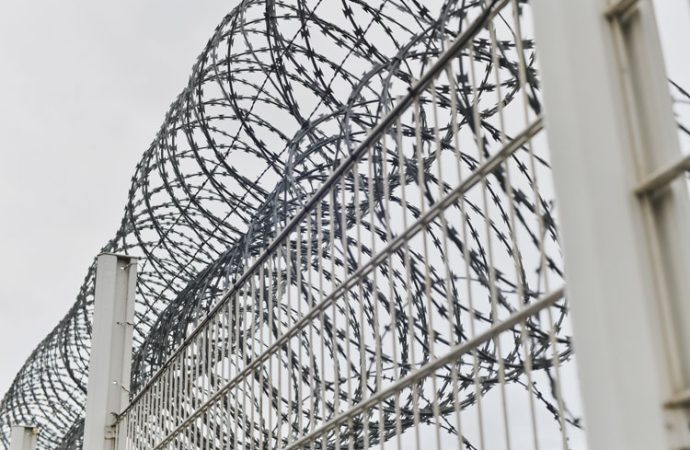Author Recent Posts Humna Majeed Latest posts by Humna Majeed (see all) An Analysis of Legal and Policy Framework of Pakistan on Refugees – December 27, 2023 Role of Narrative Building in Shaping Opinions during Israel-Palestine Conflict – November 21, 2023
Legislation and policy are meaningless without execution. The issue of refugees in Pakistan has persisted for decades, with the country hosting millions primarily from Afghanistan and Bangladesh. Despite its significant role as a host nation, the legal and policy framework concerning refugees in Pakistan is marked by inconsistencies. This analysis aims to delve into the existing legal and policy framework of Pakistan on refugees and address the question: How does Pakistan’s legal and policy framework impact the rights and protection of refugees within its borders?
Pakistan’s ad hoc arrangements and bilateral treaties form the basis of its refugee framework, lacking comprehensive national legislation. This approach results in refugees being treated inconsistently, without recognition as a distinct legal category. Notably, Pakistan is not a signatory to the 1951 Convention Relating to the Status of Refugees or its 1967 Protocol, which are key international instruments governing refugee rights and host state obligations.
While Pakistan has signed bilateral treaties with neighbouring countries, to address the issue of refugees. However, the effectiveness of these treaties in safeguarding refugee rights needs critical assessment. Bilateral treaties with Afghanistan and Bangladesh on refugee repatriation have been subject to criticism. For example; The 2016 agreement with Afghanistan lacks flexibility, mandating refugee return without considering individual circumstances or the security situation in Afghanistan. Pakistan’s agreement with the UNHCR allows humanitarian assistance but falls short of granting legal status or rights to refugees, creating uncertainty for both refugees and the UNHCR. Moreover, the periodic renewal and revision of the agreement highlight a lack of commitment to international obligations, impacting the stability and security of refugees.
Pakistan’s approach to refugees reflects a complex interplay of historical, political, and legal factors. Pakistan’s policy framework for refugees has undergone significant evolution, influenced by political interests and external pressures. The treatment of Afghan and Bihari refugees has varied over the years, reflecting contrasting perspectives within the country’s leadership. Pakistan’s approach to refugees been shaped by historical ties, geopolitical considerations, and international relations. For instance; the policies regarding Afghan refugees have been leveraged for political and strategic gains, serving as a bargaining chip in Pakistan’s relations with Afghanistan and its allies. This has led to a complex dynamic where Afghan refugees have received comparatively more hospitable treatment, while Bihari refugees have been neglected and marginalized.
Pakistan’s legal framework diverges from international refugee law, defining and treating refugees arbitrarily based on its own criteria. This inconsistency leads to discriminatory practices violating principles such as non-refoulement (prohibition of forcible return), non-discrimination (equal treatment regardless of nationality or origin), and non-penalization (no punishment for illegal entry or stay). As we have observed in some recent developments regarding refugees.
According to the National Refugee Law and Policy of 2010, Afghan refugees in Pakistan are categorized as registered and undocumented, with the latter facing the risk of deportation. The recent announcement by the interim government to expel irregular foreign migrants, primarily Afghans, has raised concerns about the fate of those who have long-standing ties to Pakistan and lack legal identity in either country. This decision not only raises questions about adherence to international law but also poses challenges for Pakistan’s reputation and its ability to secure international aid.
To sum up, Pakistan’s refugee management has been decades long policy failure. The root causes and long-term solutions have been neglected in favor of short-term actions such as registration, repatriation, or relocation. The legislation and policies are flawed, incoherent, and uncoordinated, disregarding the social, economic, and environmental effects on both refugees and host communities. The legal and policy frameworks show a mismatch between national security interests in the legal domain and regional politics and international pressures in the policy domain.
Pakistan needs to critically review and improve its legal and policy framework regarding refugees. Pakistan has made some efforts to address the issue, but there are gaps within the framework that prevent the effective protection of refugee rights. Pakistan should harmonize its legal framework with international standards, develop a consistent policy framework, and pursue long-term solutions for refugees, to fulfill its obligations as a major refugee-hosting country. This way, Pakistan can better protect the rights of refugees and enhance regional stability and security. Balancing national interests with humanitarian obligations will be crucial in shaping a more equitable and sustainable approach to refugee management.
- An Analysis of Legal and Policy Framework of Pakistan on Refugees - December 27, 2023
- Role of Narrative Building in Shaping Opinions during Israel-Palestine Conflict - November 21, 2023





















Leave a Comment
Your email address will not be published. Required fields are marked with *